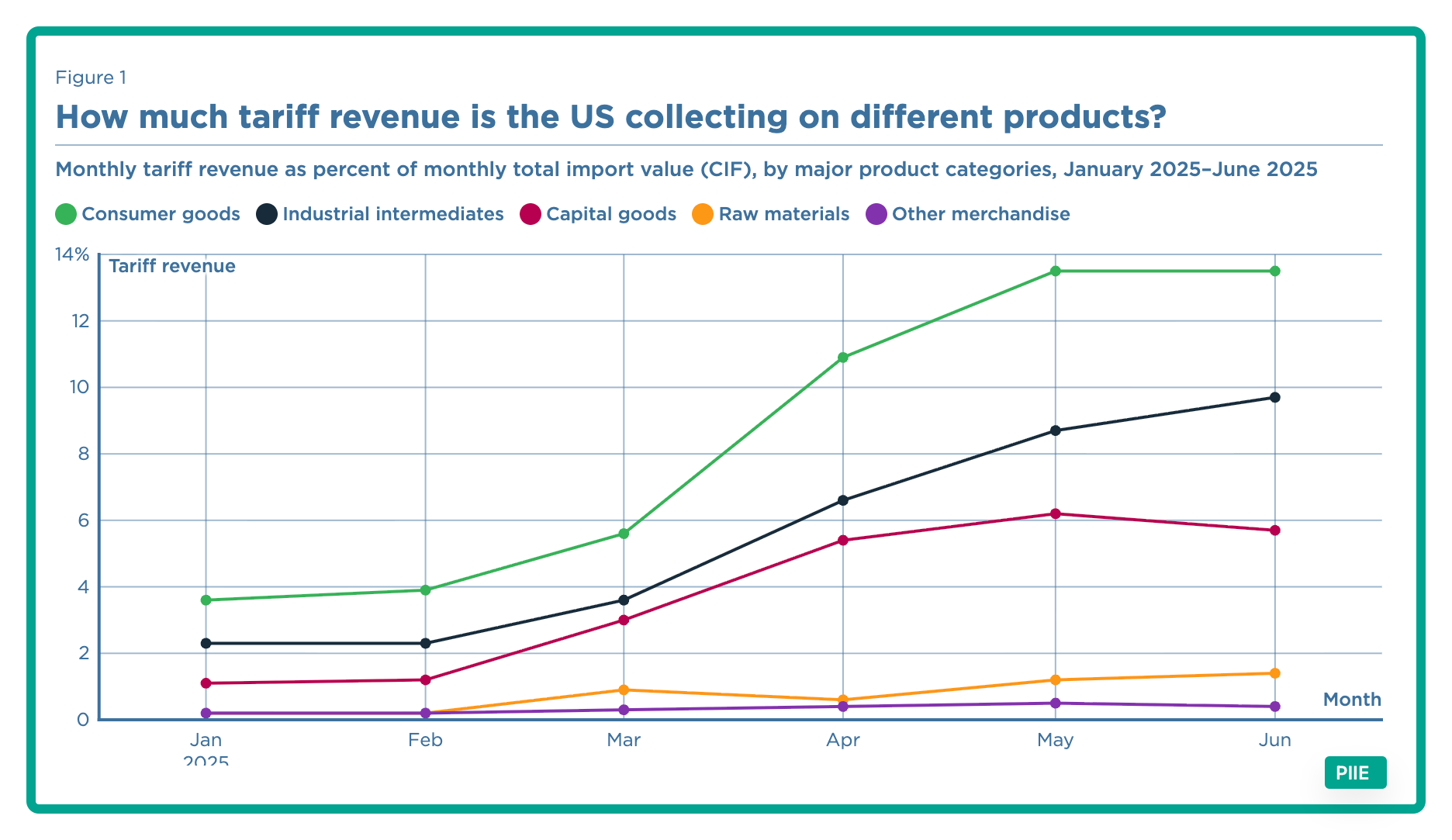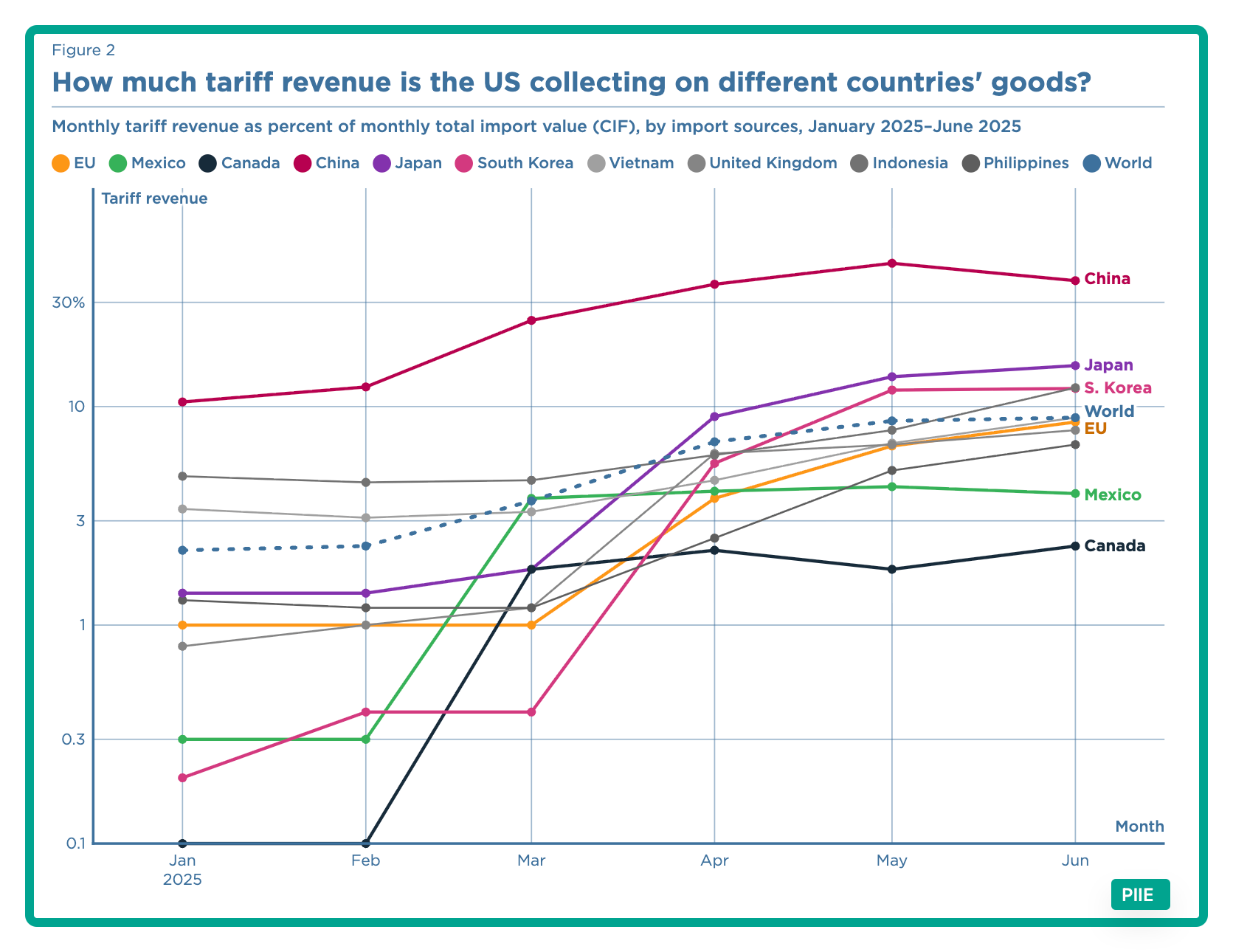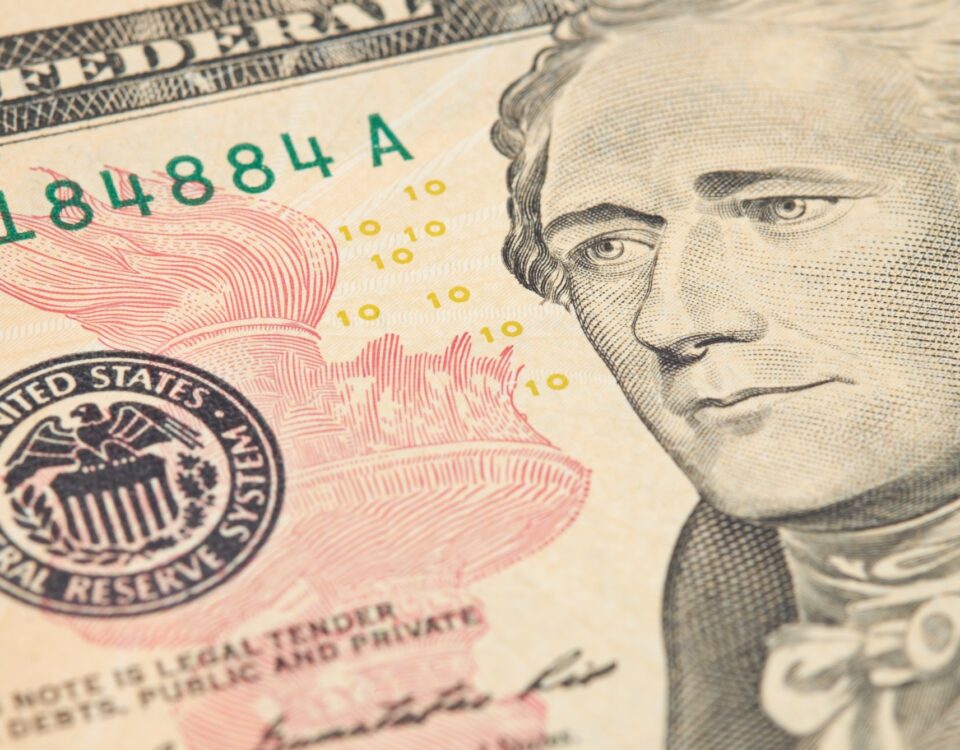
Why, Where, and How We Waste Food
August 27, 2025
When Did the Federal Reserve Become Independent?
August 29, 2025The answers to three questions demonstrate the impact of tariffs. We can ask what, where, and how much.
Tariff Revenue
What?
When we ask “What,” consumer goods top our list. After that, industrial intermediates that include car parts, for example, and capital goods like electrical machinery precede raw materials and other merchandise:

Where?
As for where the goods come from, predictably, China is #1:

How Much?
To calculate tariff revenue, first we need to multiply import value, (including shipping, and insurance) by the tariff rate. However, exemptions and delays reduce the total. Consumer goods brought in $3.2 billion during January 2025–a tariff rate of 3.6 percent that we got by dividing the import value by the estimated tariff revenue. The result is a total substantially less than the federal deficit.
Below one graph says it all:

Our Bottom Line: Smith and Ricardo
Surely, at this moment, 18th century economic thinker Adam Smith (1723-1790) is protesting from his grave. As an advocate of laissez-faire, he perceived the distortionary impact of a tariff when it skews our incentives. In addition, most emphatically, he would have reminded us that trade, by increasing production, is mutually beneficial. And finally, he would have cited the corruption that tariffs can create as well as the elevated prices that consumers have to pay.
Then, adding to the screams from the cemetary, we have David Ricardo (1772-1823) seeing his comparative advantage being compromised. During his lifetime, Ricardo opposed the Corn Laws as import taxes that elevated the price of domestic grain. His rationale was that because other nations sacrificed less to produce their grain, England should not. Indeed, if everyone produces all that they secrifice the least for, they benefit from accelerated growth.
Combining Smith and Ricardo, we wind up with the distant sale from disparate regions through which economies of scale and comparative advantage enlarge markets. Only with tariffs can we diminish all of the benefits from trade that Smith and Ricardo envisioned.
My sources and more: Thanks to PIIE’s newsletter email for the tariff update. Then, Marginal Revolution perfectly summarized what Adam Smith said about mercantilism.
![econlifelogotrademarkedwebsitelogo[1]](/wp-content/uploads/2024/05/econlifelogotrademarkedwebsitelogo1.png#100878)




